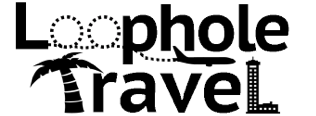
Disclosure: We get a commission for some links on this website. You don’t have to use our links, but we’re very grateful when you do. Opinions expressed here are the author's alone, and have not been reviewed, approved or endorsed by our partners. Here’s our Advertiser Disclosure.
If you’re into the miles and points game like us, you have at least a few credit cards. You have likely checked your mail and found offers from various banks for 0% balance transfers. It seems like banks have really been pumping these balance transfer checks out at a very high rate lately. Our mailbox is full of them! So, what should you do when you find these balance transfer checks in your mailbox? Are they a good deal, or should you stay away?
On the surface, a balance transfer that offers 0% for 12-18 months seems like a great deal. When I first saw one, I thought I would just write a check for my full credit line and buy a high-yield CD (back when those existed). When the CD matured, I would pocket the interest and pay off the credit line. Easy money, right? Not so fast…
Why Balance Transfer Checks are a Bad Deal
- Fees – Embedded in these offers is a balance transfer fee, which generally ranges from 2-5% of the amount requested. This is charged immediately when you transfer the funds. For example, if you want to transfer $2,000, it will cost between $40-$100!
- Back-Interest – Another problem with these balance transfer checks is called the back-interest. If you do not pay the balance off completely by the final day of the 0% period, you will be charged ALL of the interest from the entire time period! The interest rate is often VERY high, and if you forget or leave even $1 on the balance, you will be charged for the full balance and the full amount of interest.
These two reasons should explain why banks continue to pelt your inbox with these balance transfer offers. They make big money from these seemingly beneficial offers. They make fee income on the front end and hit you with big interest charges if you don’t pay 100% of the balance by the end date.
What Should You Do With the Checks?
If you find these checks in your mailbox, we recommend shredding them immediately. If you simply toss them in the trash or recycling, you open yourself up to the possibility of fraud. Someone could easily find these checks in the trash and write a check to them self! If you don’t have a shredder, at least rip the checks into small pieces before tossing them out.
Are Balance Transfers Ever a Good Idea?
If you are currently carrying balances on any of your credit cards month-to-month, you should pay those off before getting into the miles and points game. In this scenario, a balance transfer could be useful to rid yourself of the high interest on a credit card.
The Chase Slate card actually offers no-fee balance transfers for new card members, with 0% interest up to 15 months from account opening. If you are carrying a balance on a high-interest rate card, this card can help you get out from under that balance. But you must be sure to pay the balance off entirely, or you will be charged back-interest!
Final Thoughts
Balance transfer checks are simply a bad deal. They can be tempting, with the large-print 0% offers, but be careful to read the fine print! High fees and back-interest can really cost you money if you use these offers. Take those checks from your mailbox and toss them directly into the shredder! If you are genuinely in need of a 0% balance transfer, consider the Chase Slate card. Knock out those balances, and then you can start earning miles and points. Cheers!
If you enjoy the content on Loophole Travel, Like us on Facebook, Follow @loopholetravel on Twitter, and subscribe to our weekly newsletter!
Editorial Disclaimer: Opinions expressed here are author's alone, not those of any bank, credit card issuer, airlines or hotel chain, and have not been reviewed, approved or otherwise endorsed by any of these entities.
Disclaimer: The responses below are not provided or commissioned by the bank advertiser. Responses have not been reviewed, approved or otherwise endorsed by the bank advertiser. It is not the bank advertiser's responsibility to ensure all posts and/or questions are answered.











